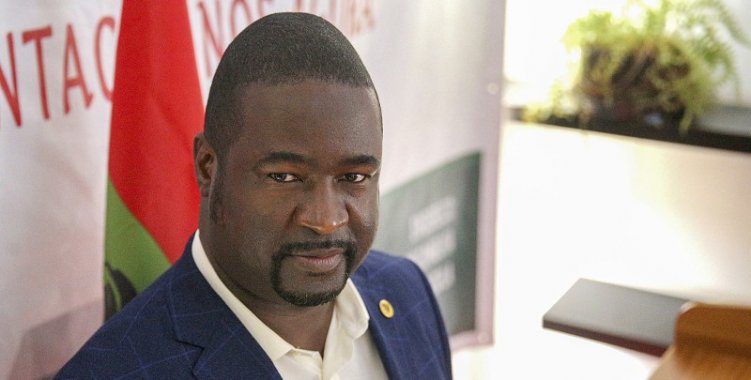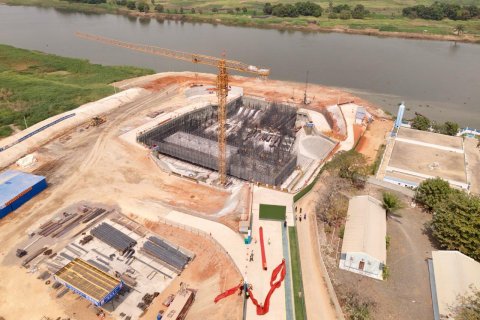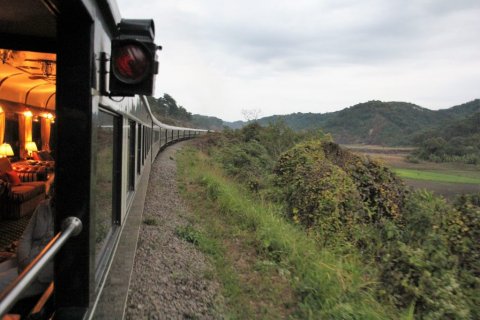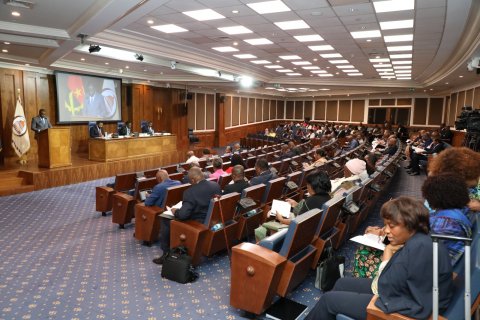The president of the parliamentary group of the National Union for the Total Independence of Angola (UNITA), Liberty Chiyaka, said in the National Assembly that the proposed law, an initiative of the President, João Lourenço, under discussion in this Thursday's session, "is dangerous", in the historical context of Angola, for proposing profound structural changes to the concept and system of national security.
Liberty Chiyaka questioned whether it is "morally and ethically acceptable and legally acceptable" for the President of the Republic, who defines the general policy orientation of the civil and military administration and the national security and defense strategy, to be, simultaneously, president of a political party.
"How to guarantee and ensure the non-partisan, republican character of exemption and impartiality of defense and security bodies when the Commander-in-Chief is president of a political party?", he asked, referring to the President, João Lourenço, who is also president of the Popular Movement for the Liberation of Angola (MPLA), party in power since 1975.
"When he is serving his last term, and during a process of dismissal due to serious violation of the Constitution and the law, measures and forms of action are proposed that violate fundamental rights, freedoms and guarantees", said Liberty Chiyaka, once again referring to the initiative to accuse and dismiss the Angolan President, proposed by UNITA, as it understands that there was a deviation from the government system established by the Constitution.
In his political declaration at the first plenary session of 2024, the leader of the UNITA parliamentary group addressed other issues, stating that Angola is experiencing an environment of degradation of institutions and impoverishment of people, families and companies.
"Never, like today, has the country experienced so much hunger, so much misery, so much insecurity, so much corruption, so much impunity, so much persecution of political opponents and so much despair," he said.
He considered that there is more injustice and inequalities, less education and health, more public debt and more hunger for the majority of the people.
"We have less freedom of the press and expression, we have more unemployment, more party-state and less citizenship, we have more institutional propaganda, more regional asymmetries, more poverty and misery, more authoritarianism and less democracy" he pointed out.
Chiyaka once again defended the need for the institutionalization of local authorities in Angola, saying that without political decentralization "there is no proximity to services" and without local authorities "there is no effectiveness in the action of local governance", criticizing the Angolan Government's initiative on the new Political Division and Administrative (DPA).
The DPA "is now coming to the rescue of the regime party's decision to maintain power at any cost", said the parliamentary leader of UNITA, stating that whoever denies implementing local authorities in 164 municipalities and "wants to impose gradualism with 164 municipalities, certainly, it is not being serious when it intends to increase to 325 municipalities".
"This is a desperate attempt to carry out a dangerous blow against the sovereignty of Angolans, a denial of the right to choose. An attempt to take hostage all those to whom the regime party wants to deny citizenship and the right to choose their local governments", he maintained.







